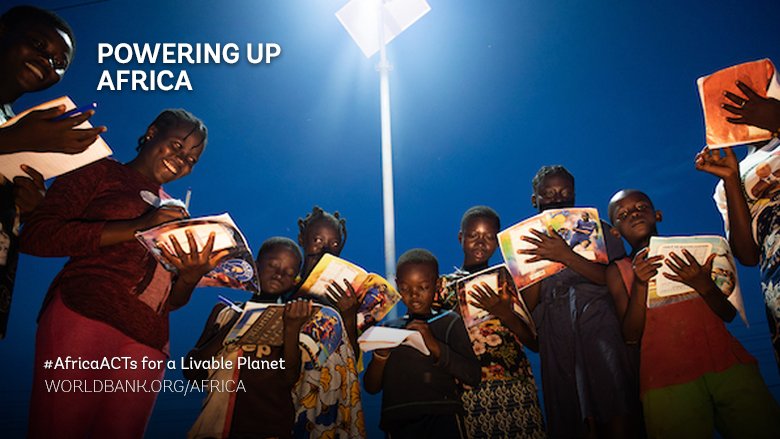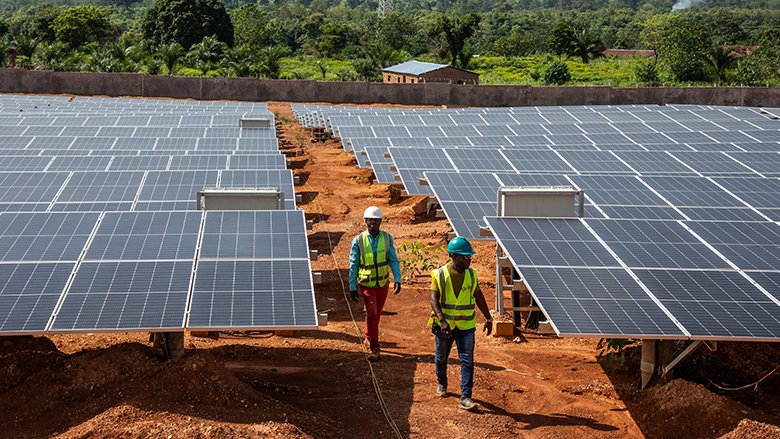“It's a great joy,” says Thomas Bissafi, the village chief of Danzi, a town in Central African Republic about 18 kilometers away from the capital of Bangui that is now home to a new solar park.
“It's helping to develop the country. I can already see a lot of people buying land to settle in our village. Companies have also set up their businesses here, and things are moving forward. Young people in my village had nothing to do and were unemployed. With the arrival of Danzi solar park, they will find opportunities”.
From this week, the new 25-megawatt Danzi solar park with battery storage will start powering the homes and lives of 250,000 residents in the capital city of Bangui and its surroundings (about 30% of the population), nearly doubling the country’s electricity generation capacity. Residents in Bangui used to face up to 16 hours of load shedding with health facilities, schools, and shops with no electricity. Now they will have much greater access to power, driving productivity and job creation.


